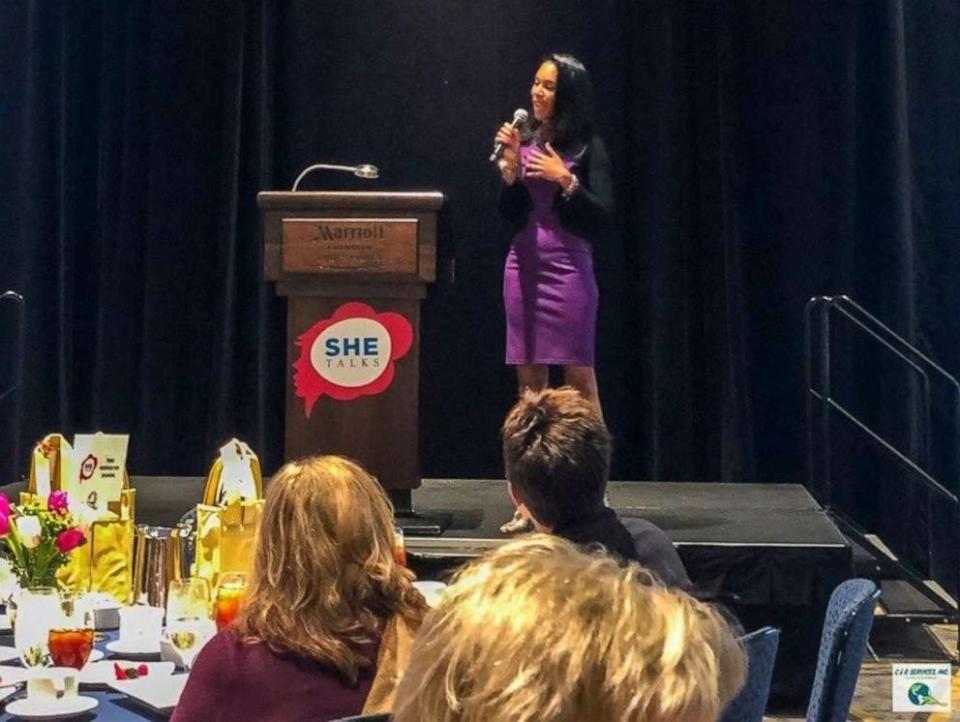I Just Retired Early At Age 41 — Here's How I Did It
Let’s face it — the pandemic put many things in perspective, including how much you love or hate your job. It’s no wonder that the gig economy is exploding and people are resigning from their full-time jobs left and right.
WWE / Via giphy.com
People are rethinking their lives and quitting their jobs, so much so that organizational psychologist Anthony Klotz dubbed this the “Great Resignation.”
I, too, joined this movement and resigned from my full-time academic career as a tenured professor. You can imagine just how many people called me foolish for leaving a “good job.” But for me, it was the right thing to do, and I couldn’t be happier!
Here’s how I did it:
First off, I didn’t plan to quit my job during the pandemic, but I was already on the path to FIRE. FIRE is an acronym for financial independence, retire early, and it's a movement that has become quite popular.

Thanks to the FIRE movement, some twenty-, thirty-, and fortysomethings are retiring earlier than the traditional retirement age. To achieve FIRE, one must focus on spending less in order to save and invest more money than traditional wisdom would suggest.
For example, instead of the typically advised 10% or 15% save-for-retirement threshold, those in the FIRE movement save and invest as much as possible, up to 50%, 60%, or even 70% of their income.
NBC / Via giphy.com
With FIRE, the focus isn't necessarily on how much money you make, but how much you save and invest. Some take drastic measures to spend less like reducing all luxuries, not eating out, and even moving into a camper. Others don’t go as extreme but pick up additional jobs, side hustles, or gigs so they can invest more. Some people early retire lean, with just enough to live comfortably, but others fat FIRE, with many times more money than what they need so that they can live a life of luxury.
I personally started my journey in 2017, right after my divorce. I was a single mom, living paycheck to paycheck. I felt financially insecure like I did as a child, being the daughter of teen parents. Everyone thought I was happy because I lived in a huge house in Tennessee. But I was miserable on the inside and strapped for cash on my professor salary.
Universal Pictures / Via giphy.com
So I made the decision to sell the marital home, since it was my biggest expense with a $2,410 mortgage. The house came with many additional expenses such as lawn care ($200 a month), water heater replacement ($700), and even snake removal from my garage ($170). It was a real money pit.
I never felt better. The weight lifted off my shoulders immediately. My two sons and I moved into a small two-bedroom (saving $1,000 a month off the mortgage expense alone) and started fresh. That’s when I learned about FIRE.
Allure Magazine / Via giphy.com
I had received about $30,000* in proceeds from the sale of the house, but I had no idea what to do with it. So I started googling, “What to do with a windfall of money.” I found some very interesting results, which made me think about it more intentionally. I then thought to myself, “Can I retire early???” After more googling, I found blogs, articles, and books about FIRE, and boom, everything changed for me in that moment.
I knew I could do it, and so I did!
*Editor's note: Though it may seem like a big chunk of money to get at one time, in terms of retirement, $30,000 is actually not a lot. According to Investopedia, in order to retire at 40, someone making $50K a year would need to have $2.25 million in savings and investments. Getting a windfall can certainly help someone reach such a goal, but there's definitely more work that goes into it.
Looking back, I can sum up my path to early retirement in three steps:
1. I made my budget my bestie.
Bravo / Via giphy.com
I got really close and personal with my budget. I reviewed it daily. I was stuck to it like glue, and I actually enjoyed it. Once I had a goal to retire early, I needed to reduce expenses and save more, and my budget helped me do just that. But I still enjoyed life by spending money on experiences that I valued rather than on things that I didn't.
For example, I switched my mobile service from a name brand (approximately $100 a month) to a much-cheaper prepaid plan ($15 a month) and haven't looked back. I also created additional custom sheets in my budget specifically for my FIRE journey: a savings rate calculator, FIRE number calculator, a yearly investment growth calculator, and a nest egg drawdown to ensure I don’t run out of money before I die.
2. I took FULL advantage of my employer-sponsored, tax-advantaged retirement accounts.
3. And I traded in earning just one income for several different streams.
Nat Geo Channel / Via giphy.com
Now that I had a frugal budget and was maxing out my 403b, 457b, and Roth IRA, I began creating additional income by creating products to help other women. I wrote a self-help workbook to teach soft skills such as negotiation tactics, conflict resolution, and dining etiquette. Eventually I started teaching courses to help others plan for early retirement. All of my proceeds went toward my investments for my goal of early retirement. I still teach how to use my budget and FIRE worksheets, all about 401(k)s, and how to trade stocks through a brokerage account on my website.
These three habits helped me become financially independent early and retire way ahead of the traditional age.

When the pandemic hit and I was working from home full time and schooling my children at home, I realized how precious time really was. I even used some of this time to co-author a children’s book with my 10-year-old son.
Finally, in May 2021, I decided to spend more time with my family, friends, and taking care of me. I still work a few hours a month by speaking about financial freedom as a financial hero for Personal Capital and blogging to expose others to what’s possible. I’m grateful for the journey.
Do you have any questions about the FIRE movement? Sound off in the comments!
And for more stories about life and money, check out the rest of our personal finance posts.

